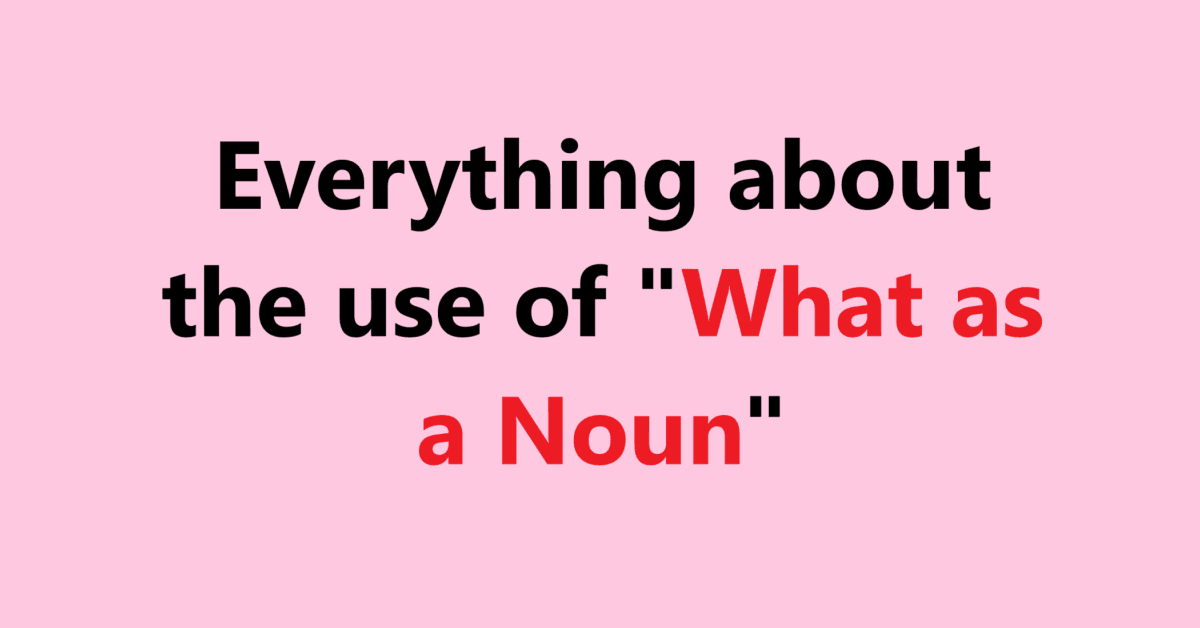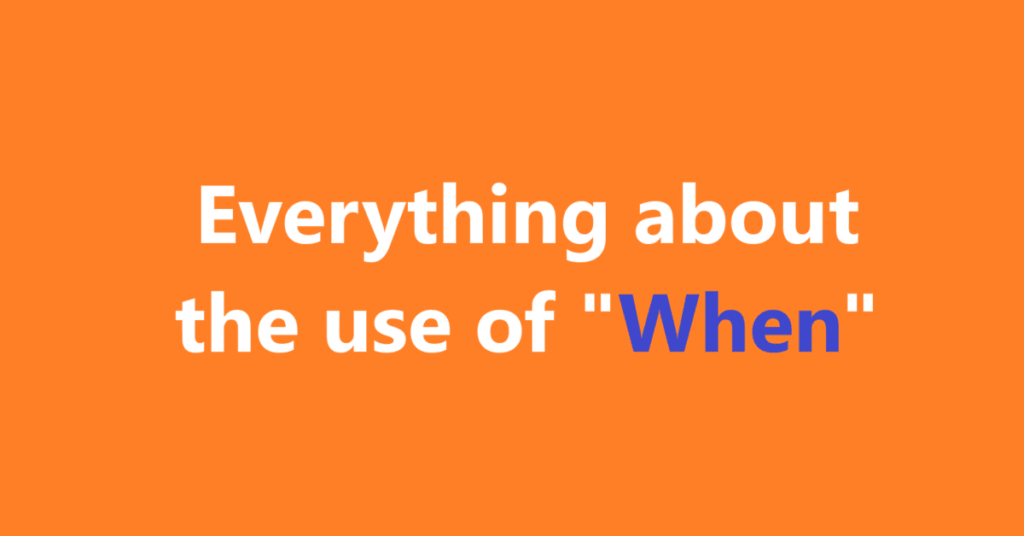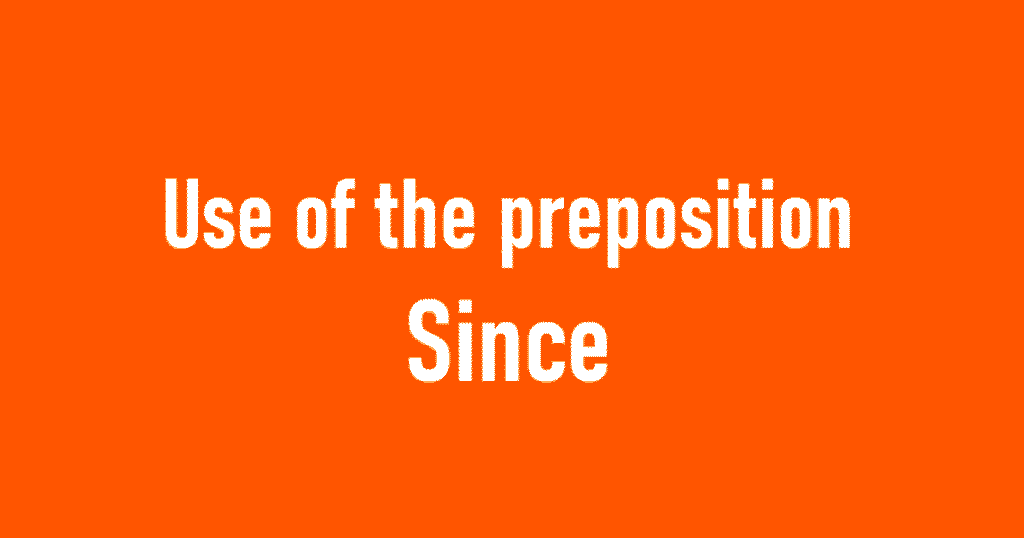Using “what” as a noun is a versatile aspect of English grammar. It allows speakers to reference ideas, objects, or concepts without specifying them in detail. Here’s a comprehensive guide on how “what” functions as a noun.
Definition
As a noun, “what” is often used to refer to something unspecified, whether it’s a thing, event, or information. It can stand alone or be part of larger constructions.
Functions of “What” as a Noun
- Reference to a Thing or Concept
- “What” can refer to an object or idea without specifying its identity.
- Example: What is important is not what you say, but how you say it.
- Interrogative Noun
- While “what” serves as an interrogative pronoun in questions, it can also function as a noun when used to inquire about something more abstract.
- Example: What you need is a fresh perspective.
- Exclamatory Noun
- “What” can be used in exclamatory sentences to express admiration or surprise.
- Example: What a wonderful day it is!
Common Uses
- Asking Questions
- “What” often functions as the subject or object in questions, allowing for inquiries about specific information.
- Example: What you said really resonated with me.
- Emphasizing Statements
- It can be used to emphasize particular aspects of a conversation.
- Example: What a challenge this project has become!
- Emphasizing Features or Qualities
- “What” can precede a noun to emphasize its nature or character.
- Example: What joy it brings to see everyone here!
Phrase Structures
- “What” + Noun
- This structure emphasizes a noun following “what.”
- Example: What fun we had at the party!
- “What” as a Subject or Object
- “What” can serve as the subject or object within clauses.
- Examples:
- Subject: What is most interesting is the variety of choices.
- Object: I didn’t understand what was happening.
Common Errors
- Improper Usage in Sentences
- “What” should be followed by an appropriate clause or noun phrase.
- Incorrect: I don’t know what.
- Correct: I don’t know what to do next.
- Omitting Parts of Speech
- Avoid incomplete sentences.
- Incorrect: What was your favorite?
- Correct: What was your favorite part of the movie?
Examples of “What” as a Noun
- What she said was surprising.
- I can’t believe what happened yesterday.
- What you choose to believe is up to you.
- What I need is a good night’s sleep.
- What matters is your happiness.
- What he did was unacceptable.
- What came next was unexpected.
- What you have to understand is the importance of teamwork.
- What they want is clear communication.
- What I admire most is her determination.
Indirect Questions Using “What” as a Noun
- Example: I’m not sure what you mean by that.
Questions and Answers on “What” as a Noun
Here are 40 questions and answers based on the use of “what” as a noun:
- Question: What is the main reason for your decision?
Answer: What I value most is integrity and honesty. - Question: What do you think is the best approach?
Answer: What I believe is to communicate openly and honestly. - Question: What did you say was your favorite movie?
Answer: What I said was that “Inception” is my favorite. - Question: What makes you happy?
Answer: What makes me happy is spending time with my family. - Question: What is your biggest accomplishment?
Answer: What I consider my biggest accomplishment is graduating from college. - Question: What do you find most challenging about your job?
Answer: What I find challenging is the constant change in deadlines. - Question: What could we do to improve our team dynamics?
Answer: What we could do is organize regular team-building activities. - Question: What do you think is the key to success?
Answer: What I think is the key to success is perseverance and hard work. - Question: What would you say is your passion?
Answer: What I would say is my passion is photography. - Question: What kind of music do you enjoy?
Answer: What I enjoy the most is classical and jazz music. - Question: What is your ultimate goal for this project?
Answer: What my ultimate goal is to increase our market reach. - Question: What do you usually do on weekends?
Answer: What I usually do is relax and catch up on my reading. - Question: What do you think about the new policies at work?
Answer: What I think is that they could lead to better efficiency. - Question: What do you consider the biggest challenge in your industry?
Answer: What I consider the biggest challenge is keeping up with technology. - Question: What have you learned from your experiences?
Answer: What I’ve learned is to be adaptable and open-minded. - Question: What would you like to achieve in the next five years?
Answer: What I would like to achieve is a leadership role in my company. - Question: What do you think is the most important quality in a leader?
Answer: What I think is most important is the ability to inspire others. - Question: What did you enjoy most about your last vacation?
Answer: What I enjoyed most was the time spent relaxing on the beach. - Question: What are your thoughts on remote work?
Answer: What I think is that it offers flexibility and work-life balance. - Question: What is your favorite part of your job?
Answer: What I love most is collaborating with my colleagues. - Question: What would you consider a perfect day?
Answer: What I consider a perfect day involves good food, hiking, and laughter. - Question: What challenges do you face in your daily routine?
Answer: What I face daily are distractions and time management issues. - Question: What do you believe is the secret to happiness?
Answer: What I believe is finding balance in life. - Question: What makes a good friend, in your opinion?
Answer: What makes a good friend is loyalty and support. - Question: What is your view on climate change?
Answer: What I think is that immediate action is crucial for our future. - Question: What do you wish you had more time for?
Answer: What I wish I had more time for is pursuing my hobbies. - Question: What advice do you have for someone starting a career?
Answer: What I advise is to network and seek mentorship. - Question: What is the best piece of advice you’ve received?
Answer: What I’ve found most useful is to never stop learning. - Question: What interests you about your field of work?
Answer: What interests me is the constant innovation and creativity. - Question: What skills do you think are essential for your job?
Answer: What I think are essential skills are communication and problem-solving. - Question: What do you think is the impact of technology on society?
Answer: What I think is that it has both positive and negative effects. - Question: What do you enjoy doing in your free time?
Answer: What I enjoy is painting and exploring new places. - Question: What are the qualities of a good mentor?
Answer: What I believe are important qualities are patience and wisdom. - Question: What have been the highlights of your career so far?
Answer: What have been the highlights are successful projects and positive feedback. - Question: What do you think keeps people motivated?
Answer: What I think keeps people motivated is having clear goals. - Question: What challenges do students face today?
Answer: What students face today are increased pressure and competition. - Question: What do you consider the most crucial skill for effective communication?
Answer: What I consider crucial is active listening. - Question: What is something you’ve always wanted to learn?
Answer: What I’ve always wanted to learn is a new language. - Question: What do you think constitutes a healthy lifestyle?
Answer: What I think constitutes a healthy lifestyle is balanced nutrition and regular exercise. - Question: What do you appreciate most in your life right now?
Answer: What I appreciate most is the love and support of my family.
FAQs on “What as a Noun”
Here’s a list of frequently asked questions (FAQs) based on the use of “what” as a noun, along with their answers:
- Q: What does it mean when “what” is used as a noun?
A: When “what” is used as a noun, it refers to an unspecified thing, concept, or idea. It can stand alone or be part of a larger sentence to express abstract thoughts or inquiries. - Q: Can you give an example of “what” used as a noun in a sentence?
A: Sure! For example: “What you need is a new strategy for the project.” - Q: How is “what” different from other interrogative words when used as a noun?
A: Unlike other interrogative words like “who” or “where,” “what” can refer to things or concepts, making it versatile in both questions and statements about ideas or objects. - Q: In what contexts can “what” as a noun be used?
A: “What” can be used in contexts involving questioning, emphasis, opinions, and declarations about ideas or situations. For example: “What he did was remarkable.” - Q: Can “what” as a noun be used in exclamatory sentences?
A: Yes, it can. For example: “What a beautiful sunset!” emphasizes the beauty of the sunset using “what” as a noun. - Q: Are there any grammatical rules I should follow when using “what” as a noun?
A: Yes, ensure that “what” is followed by a complete clause or phrase to provide clarity. For example, avoid phrases like “I don’t know what” without context. - Q: Can “what” as a noun introduce indirect questions?
A: Yes, it can introduce indirect questions. For example: “I wonder what she thinks about the plan.” - Q: Is “what” always followed by a noun?
A: Not necessarily. “What” can introduce a clause or statement that acts as a noun, such as in: “What I enjoy most is traveling.” - Q: How can “what” be used to express opinions?
A: “What” can present a personal view or belief, such as in: “What I believe is that education is crucial for success.” - Q: Is using “what” as a noun common in everyday conversation?
A: Yes, it is common in everyday conversation for making statements, expressing thoughts, and engaging in discussions about various topics. - Q: Can “what” serve as the subject of a sentence?
A: Yes, “what” can act as the subject. For example: “What matters most is your happiness.” - Q: Can “what” be used in both formal and informal contexts?
A: Absolutely. “What” as a noun can be effectively used in both casual conversations and formal writing, depending on the structure and context. - Q: Are there synonyms for “what” when it is used as a noun?
A: While there are no direct synonyms for “what” in this context, phrases like “that which” or “the thing that” can sometimes convey similar meanings. - Q: How does “what” function in rhetorical questions?
A: In rhetorical questions, “what” emphasizes an idea without expecting a direct answer. For example: “What could be more important than family?” - Q: Can “what” appear at the beginning of a sentence as a noun?
A: Yes, it can open sentences to emphasize a point, as in: “What I appreciate about my job is the teamwork.”
Summary
Using “what” as a noun enriches communication by allowing for abstraction and emphasis in language. It can ask for clarification, emphasize significance, or refer to undefined entities. Mastering this usage helps in both spoken and written English.


